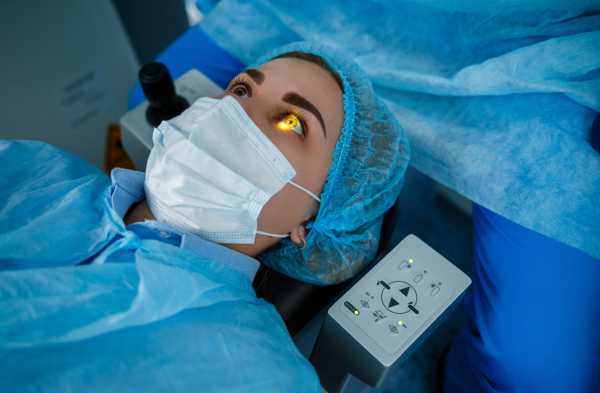Effective Substance Abuse Treatment Solutions
Substance abuse is a serious issue that affects millions of people worldwide, leading to physical, emotional, and social consequences. Whether it's addiction to alcohol, prescription drugs, or illicit substances, substance abuse can severely impact an individual's life, health, and relationships. However, there is hope. Through effective treatment solutions, individuals can recover and regain control of their lives.
Substance abuse is a serious issue that affects millions of people worldwide, leading to physical, emotional, and social consequences. Whether it's addiction to alcohol, prescription drugs, or illicit substances, substance abuse can severely impact an individual's life, health, and relationships. However, there is hope. Through effective treatment solutions, individuals can recover and regain control of their lives.

This article will explore some of the most effective and widely used treatments for substance abuse, offering insights into various approaches and resources available for those struggling with addiction.
Understanding Substance Abuse and Addiction
Substance abuse refers to the harmful or hazardous use of psychoactive substances, including alcohol, drugs, and medications. When a person develops an addiction, it means they have lost control over their substance use, leading to negative physical and psychological consequences. Addiction is often characterized by:
- Cravings and compulsive use
- Tolerance(needing more of the substance to achieve the same effect)
- Withdrawal symptomswhen not using the substance
- Loss of controlover substance consumption
- Interference with daily lifeand responsibilities
Substance abuse is a complex disorder, influenced by a combination of genetic, environmental, and psychological factors. However, the good news is that substance abuse treatment is possible, and individuals can recover with the right help.
Key Components of Effective Substance Abuse Treatment
There is no one-size-fits-all solution for substance abuse treatment. The most effective treatment programs are personalized to meet the individual’s unique needs. However, the following components are generally considered essential for successful recovery:
- Assessment and Evaluation: The first step in treatment is a thorough assessment by a healthcare professional to understand the severity of the addiction, any co-occurring mental health disorders, and the person’s physical health. This helps in creating an individualized treatment plan.
- Detoxification (Detox): Detox is often the first step in treatment for those with severe addictions, particularly to substances like alcohol, heroin, or prescription drugs. Detoxification helps manage withdrawal symptoms and clears the body of the substance, making the person physically stable before they begin therapy. Detox should always be done under medical supervision, as withdrawal from certain substances can be dangerous.
- Therapy and Counseling: Therapy is a cornerstone of effective substance abuse treatment. It helps individuals understand the root causes of their addiction, learn coping mechanisms, and develop skills for long-term sobriety.
- oCognitive Behavioral Therapy (CBT): CBT is one of the most widely used and effective therapies for substance abuse. It helps individuals recognize and change negative thought patterns that contribute to their addiction and teaches healthier ways of coping with stress and cravings.
- oMotivational Interviewing (MI): MI is a counseling technique that helps individuals resolve ambivalence about quitting substance use and enhance their motivation for change. It focuses on encouraging and empowering the person to take responsibility for their recovery.
- oContingency Management: This approach uses positive reinforcement, such as rewards for staying sober, to encourage abstinence from drugs or alcohol.
- o12-Step Facilitation Therapy: Based on the principles of Alcoholics Anonymous (AA)or Narcotics Anonymous (NA), this approach encourages individuals to engage in a community-based support system, which has proven helpful in promoting long-term sobriety.
- Medication-Assisted Treatment (MAT): For individuals struggling with opioid or alcohol addiction, MATcan be an effective treatment option. MAT uses medications to reduce cravings and withdrawal symptoms while also providing counseling and therapy to address the behavioral aspects of addiction.
- oFor Opioid Addiction: Medications such as methadone, buprenorphine, and naltrexoneare commonly used in MAT to help individuals recover from opioid addiction.
- oFor Alcohol Addiction: Medications like disulfiram, acamprosate, and naltrexoneare used to help reduce cravings and prevent relapse.
MAT is often most effective when used in combination with counseling and other therapeutic interventions.
- Inpatient and Outpatient Treatment Programs: Depending on the severity of the addiction, treatment may take place in an inpatientor outpatient setting.
- oInpatient Treatment: Inpatient treatment involves staying at a rehabilitation facility where individuals receive around-the-clock care and supervision. It is typically recommended for individuals with severe addictions or co-occurring mental health disorders.
- oOutpatient Treatment: Outpatient programs allow individuals to live at home while attending treatment sessions during the week. This type of treatment is often suitable for individuals with mild to moderate addiction or those who have completed inpatient treatment and require ongoing support.
- Aftercare and Long-Term Support: Recovery from substance abuse doesn’t end after completing a treatment program. Long-term success often requires ongoing support, including:
- oSober living houses: These are supportive, drug-free environments where individuals can live as they transition back into society.
- oPeer support groups: Engaging in support groups like AAor NA can provide valuable ongoing support, encouragement, and accountability.
- oRelapse prevention programs: These programs teach individuals how to cope with cravings, high-risk situations, and triggers that may lead to relapse.
Types of Substance Abuse Treatment Solutions
There are various treatment modalities available depending on the type of substance abused, the severity of the addiction, and the individual’s circumstances. Here are some of the most common and effective treatment options:
- Residential Treatment (Inpatient Rehab)
Inpatient rehab programs offer a structured, supportive environment for individuals who need intensive treatment. These programs are particularly effective for those with severe addiction, as they provide:
- 24/7 care and supervision
- Individual and group therapy
- Life skills development
- Family counseling
Inpatient treatment allows individuals to focus solely on their recovery, free from the distractions and triggers of daily life.
- Outpatient Programs
Outpatient treatment allows individuals to maintain their daily responsibilities while receiving treatment. It’s suitable for those with a lower level of addiction or those who have completed residential treatment. Benefits include:
- Flexibility to attend treatment while continuing to work or study
- Regular counseling and group therapy sessions
- Community support and group activities
- Intensive Outpatient Programs (IOP)
An intensive outpatient program is a step between inpatient and standard outpatient care. Individuals in IOP typically attend treatment sessions several times a week and receive more intensive therapy than standard outpatient programs. IOP is often recommended for individuals who have completed inpatient care and need additional support before transitioning back to their regular lives.
- Partial Hospitalization Programs (PHP)
A partial hospitalization program provides a high level of care while allowing the individual to return home at the end of the day. This option is for those who need intensive therapy but are stable enough to live at home. PHPs usually involve daily therapy, group counseling, and medical monitoring.
- Dual Diagnosis Treatment
For individuals with both a substance use disorder and a co-occurring mental health disorder (such as depression, anxiety, or PTSD), dual diagnosis treatment is essential. Effective treatment plans address both the addiction and the mental health condition simultaneously, as they often exacerbate each other. Integrated care is necessary to ensure that both issues are treated appropriately.
- Holistic and Alternative Therapies
In addition to traditional therapy and medications, many rehab centers offer holistic therapies to support recovery. These may include:
- Yoga and meditation: These practices help individuals relax, reduce stress, and build mental resilience.
- Art therapy: Encourages creative expression as a way of processing emotions and building self-esteem.
- Acupuncture: Some individuals find relief from withdrawal symptoms and cravings through acupuncture.
- Nutritional counseling: Proper nutrition can play a significant role in the recovery process, supporting physical and mental health.
Conclusion: A Path to Recovery
Substance abuse is a challenging condition, but recovery is entirely possible. The key to effective treatment is a comprehensive, personalized approach that includes detox, therapy, medication, and long-term support. Whether you’re seeking treatment for yourself or a loved one, understanding the available options is the first step toward recovery.
There is no single treatment that works for everyone, but with the right combination of care and support, many individuals can overcome substance abuse and lead fulfilling, sober lives. If you or someone you know is struggling with addiction, reaching out to a healthcare provider or treatment facility can help you explore the best options for a successful recovery journey.








